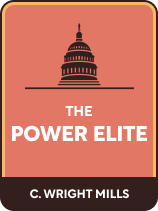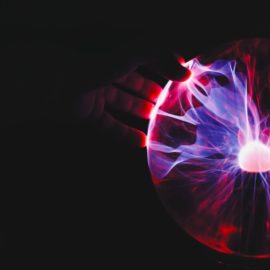

This article is an excerpt from the Shortform book guide to "The Power Elite" by C. Wright Mills. Shortform has the world's best summaries and analyses of books you should be reading.
Like this article? Sign up for a free trial here.
Do you feel powerless to impact politics? Does it seem like the major decisions are made by powerful people far away?
You’re not alone—and things haven’t always been this way. In The Power Elite, American sociologist C. Wright Mills discusses how a small group of corporate, military, and political leaders has taken over a vast majority of American political and economic decision-making.
Continue reading for Mills’s exploration of how the centralization of power progressed in America at the expense of the people.
The American People and Power
Mills argues that, due to changes in media and political organization, many Americans feel powerless to influence their political circumstances—a situation that has contributed to a broad national sense of unease and loss of control. Mills suggests that this sense of unease can eventually lead to large-scale political violence.
We’ll explore how the American people have traditionally exercised political power and how they’ve lost this influence over time as the centralization of power progressed. In particular, we’ll look at the three main institutions that define the relationship between the American people and their political circumstances:
- The media
- Political organizations
- Intellectuals
Institution #1: The Media
This centralization of power first occurred when new technologies like radio and television made it easier for a few people to reach many, while lax regulation allowed a few major corporations to dominate the media industry.
Centralization of media has reduced the number of opinions and viewpoints available to the public. Mills doesn’t believe that all major news sources agree on everything, but he does believe that none of them question or challenge the power of the elite.
Average people are unable to respond to or challenge mass media in meaningful ways. Individuals don’t have platforms to express their opinions in a way that others will notice, and they can’t act on their opinions in any significant way.
Institution #2: Political Organizations
In addition to the media, Mills argues that American political organizations have also centralized over time, taking power and influence away from the people. Traditionally, an average American could influence local community politics, which then could organize with other communities to influence state and federal politics. For example, John joins a union, then can influence it through regular meetings and elections. Then, his union works with other unions to form a broad political base, with money and votes to influence government policy and elections.
Mills explains that, as the government centralized, these political organizations centralized as well. This is for two main reasons:
- Smaller political organizations are less effective at influencing large, centralized government bureaucracy—since they have less power and money, they’re sidelined in favor of those who do.
- As electoral politics became less accountable to the people (as previously discussed), those wanting to be heard flocked to political organizations, causing them to grow in size.
He suggests that this led to a shift in the structure of organizations: Instead of many autonomous communities coming together to create an organization, a select group of executives and bureaucrats now control massive national volunteer organizations. Members of these groups are as disconnected from real power as they are in politics—they’re single members out of millions.
(Shortform note: To better understand Mills’s points, let’s take a look at the structure of nonprofit political organizations. Much like corporations, nonprofit political organizations are led by a board of directors that votes on leadership positions like president or CEO. Unlike corporations, however, nonprofits don’t choose their board of directors from shareholders. Instead, whoever starts the nonprofit can decide how to choose directors on their own. This means in a large nonprofit, decisions about leadership are generally made only by those at the highest level.)
Institution #3: The Intellectual Class
Mills argues that, traditionally, intellectuals in America served to challenge or explain political dynamics to the American people. However, Mills claims that this is no longer the case. He suggests that the majority of American intellectuals fail to acknowledge, question, or challenge the rule of the power elite. This has also taken power away from the American people by depriving them of their ability to understand what’s going on in government, why it’s going on, and how it affects them.
According to Mills, both post-war conservatives and post-war liberals fail to acknowledge the power elite. Thus, they contribute to the problem.
Exercise: Consider Your Political Influence
Consider how much political influence you have.
- Do you feel like you have a say in the politics of your city? Your state or province? Your country overall? Why or why not?
- Do you think everyone else has an equal say in these political arenas? Why or why not?
- Do you agree with Mills’s claim that a coordinated elite class has taken power away from average people? Why or why not?

———End of Preview———
Like what you just read? Read the rest of the world's best book summary and analysis of C. Wright Mills's "The Power Elite" at Shortform.
Here's what you'll find in our full The Power Elite summary:
- How a group of corporate elite controls America's politics and economics
- How the elite exploit America's institutions for their own benefit
- A look at the dangers that arise when citizens feel powerless






